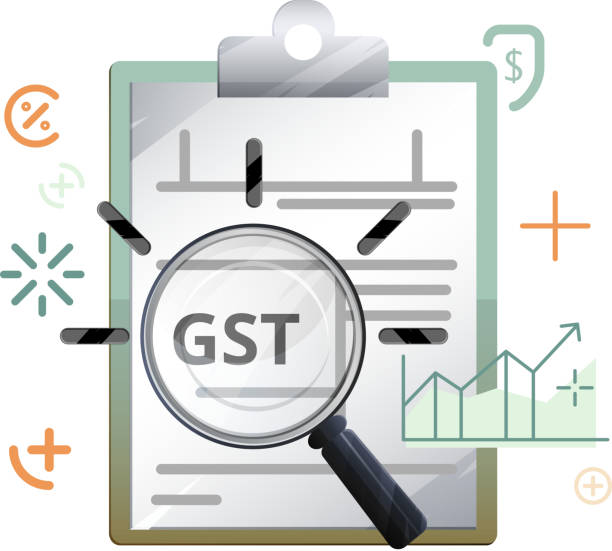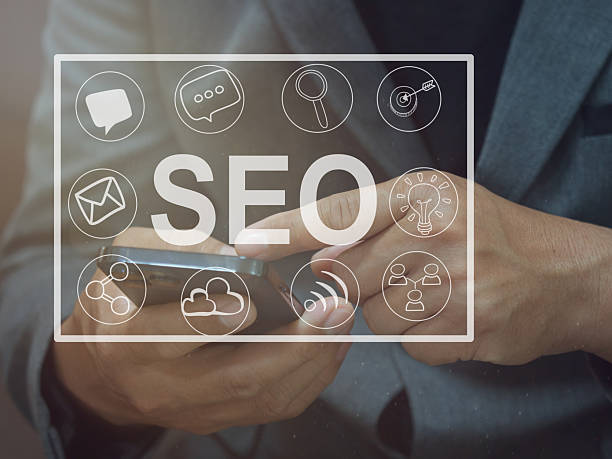What is SEO and Why Does it Matter?

What is SEO and Why Does it Matter?
#SEO or Search Engine Optimization is the process of optimizing your website to achieve higher rankings in search engine results such as Google (Google), Bing (Bing) and Yahoo (Yahoo).
This process involves a set of techniques and strategies aimed at increasing the visibility and traffic of your website through organic (non-paid) search results.
In short, SEO helps your website appear on the first page of search results, where it attracts the most user attention.
SEO is important because most users today use search engines to find the information, products, and services they need.
If your website does not rank high in search results, it is unlikely to be seen by these users, and you will lose the opportunity to attract new customers.
SEO not only increases your website traffic, but also helps improve brand credibility, increase brand awareness, and ultimately increase your sales.
Also, traffic from SEO is usually of higher quality, because users who come to your website through search are looking for the information or products you offer.
Why should we care about SEO?
- Increase website visibility and attract targeted traffic
- Improve brand credibility and awareness
- Increase sales and revenue
- Reduce advertising costs (compared to paid advertising)
- Improve website user experience
Did you know that your company’s website is the first point of contact for 75% of potential customers?
Your website is the face of your brand. With **Rasaweb’s** corporate website design services, create an online presence that earns customer trust.
✅ Create a professional and lasting image of your brand
✅ Attract target customers and increase online credibility
⚡ Get free consultation from **Rasaweb** experts!
Keyword research is an important step in SEO

Keyword research is an important step in SEO
Keyword Research is one of the most important steps in the SEO process.
This process involves finding the words and phrases that users use when searching on search engines.
By identifying these keywords, you can optimize your website content based on them and increase your chances of achieving higher rankings in search results.
Why is keyword research important?
- Understanding the needs of the target audience
- Creating relevant and engaging content
- Optimizing the website for appropriate keywords
- Increasing targeted traffic
- Improving conversion rate
How to find the right keywords?
There are various methods for keyword research, including using online tools like Ahrefs, Moz Keyword Explorer, Ubersuggest and Google Trends, checking competitors, brainstorming, and using customer feedback.
When choosing keywords, you should pay attention to factors such as search volume, competition, and relevance to your business.
Keywords with high search volume usually have more competition, while keywords with lower search volume may have less competition and it may be easier to rank for them.
Long-tail keywords can also be good options because they are usually more targeted and have higher conversion rates.
Key points in keyword research
- Focus on keywords related to your business
- Consider search volume and competition
- Use long-tail keywords
- Check competitor keywords
- Continuously update the keyword list
Internal site optimization

Internal Site Optimization
On-Page SEO includes a set of actions you take within your website to improve your website’s ranking in search results.
These actions include optimizing content, website structure, title tags and meta descriptions, URLs, images, and other website elements.
Important factors in internal site optimization
- Quality and relevant content Your website content should be quality, relevant, valuable and unique.
The content should meet the needs of your target audience and encourage them to stay on your website. - Title tags and meta descriptions Title tags and meta descriptions are important elements that appear in search results.
Title tags should be attractive and relevant and include the main keywords.
Meta descriptions should provide a summary of the page content and encourage users to click on your website link. - Optimized URLs Your website URLs should be short, descriptive, and include keywords.
- Logical website structure Your website structure should be logical and user-friendly.
Users should be able to easily navigate your website and find the information they need. - Page loading speed Page loading speed is an important ranking factor in Google.
Your website should load quickly so you don’t lose users. - Image optimization Your website images should be optimized to reduce their size and increase page loading speed.
- Using H1 to H6 tags Use H1 to H6 tags to organize your content.
The H1 tag should be the main title of the page and the H2 to H6 tags should be subheadings.
Example Price Table of Internal SEO Services
| Service | Description | Price (Toman) |
|---|---|---|
| Keyword Analysis | Identifying keywords related to the business | 5,000,000 |
| Content Optimization | Rewriting and optimizing existing content | 3,000,000 per page |
| Title and Meta Tag Optimization | Optimizing title and meta tags for each page | 500,000 per page |
External site optimization

External site optimization
Off-Page SEO includes a set of actions you take outside of your website to improve your website’s ranking in search results.
These actions include link building, social media, content marketing, and other activities that help increase your brand’s credibility and awareness.
External SEO is an important part of SEO that improves your site’s ranking by properly linking from reputable sites.
Important factors in external site optimization
- Link building Link building is one of the most important ranking factors in Google.
Quality links from reputable websites to your website show that your website is credible and valuable. - Social networks Active presence on social networks can help increase your brand awareness and increase your website traffic.
- Content marketing Content marketing involves creating and publishing valuable and engaging content that attracts your target audience and converts them into customers.
- Branding Branding helps create a positive image of your brand in the minds of your target audience.
- Public Relations Public relations involves building relationships with media and bloggers so they write about your brand and increase brand awareness.
Key points in external site optimization
- Focus on quality links
- Active presence on social networks
- Create valuable and engaging content
- Strong branding
- Build relationships with media and bloggers
Are you worried that your company’s old website will drive away new customers? Rasaweb solves this problem with a modern and efficient corporate website design.
✅ Increases your brand credibility.
✅ Helps attract targeted customers.
⚡ Contact Rasaweb for a free consultation!
User experience

User Experience
User Experience (UX) refers to users’ feelings and perceptions of your website.
A website that provides a good user experience is easy, enjoyable, and useful for users.
Good user experience can lead to increased user satisfaction, increased conversion rates, and improved website ranking in search results.
SEO and user experience are two sides of the same coin.
A website optimized for SEO, if it has a poor user experience, cannot achieve its goals.
Important factors in user experience
- Page loading speed Page loading speed is one of the most important factors in user experience.
Users expect your website to load quickly, and if your website is slow, you will lose them. - Responsive design Your website should be optimized for all devices, including mobile phones, tablets, and desktop computers.
- Easy navigation Users should be able to easily navigate your website and find the information they need.
- Readable content Your website content should be readable and understandable.
Use appropriate fonts and divide your text into short paragraphs. - Attractive visual design Your website’s visual design should be attractive and professional.
Use high-quality images and choose colors correctly.
Key points in improving user experience
- Testing your website with real users
- Receiving feedback from users
- Continuously improving your website based on user feedback
- Using web analytics tools
Local SEO

Local SEO
Local SEO refers to optimizing your website for local searches.
If your business has a physical location, local SEO can help you attract more customers from your area.
Local SEO is especially important for small and medium-sized businesses that rely on local customers.
Important factors in local SEO
- Registering in Google My Business Registering in Google My Business helps you display your business information in Google search results and Google Maps.
- Including address and phone number on the website Include your address and phone number on your website so Google can properly identify your business information.
- Receiving positive reviews Positive customer reviews can help improve your website’s ranking in local search results.
- Local link building Linking from local websites can help improve your website’s ranking in local search results.
- Optimizing content for local keywords Optimize your website content for local keywords so Google can display your website in local search results.
Key points in local SEO
- Registering in online directories
- Active presence on local social networks
- Participating in local events
Competitor analysis

Competitor analysis
Competitor Analysis refers to examining your competitors’ websites and SEO strategies.
By analyzing competitors, you can identify their strengths and weaknesses and use them to improve your SEO strategy.
Competitor analysis is an ongoing process that should be done regularly.
Steps of competitor analysis
- Identifying competitors First, you need to identify your main competitors.
Your competitors are websites that rank for similar keywords as you. - Checking competitor websites Check competitor websites completely.
Pay attention to factors such as content, website structure, design, page loading speed, and user experience. - Checking competitors’ SEO strategy Check your competitors’ SEO strategy.
Pay attention to factors such as keywords, link building, social networks, and content marketing. - Identifying competitors’ strengths and weaknesses Identify competitors’ strengths and weaknesses.
Emulate their strengths and avoid their mistakes. - Improving your SEO strategy Improve your SEO strategy based on competitor analysis.
Use the information you gained from competitor analysis to improve your website’s ranking in search results.
Competitor analysis tools
| Competitor Name | Alexa Rank | Number of Backlinks | Main Keywords |
|---|---|---|---|
| Example One | 1234 | 567 | SEO, digital marketing |
| Example Two | 5678 | 910 | Web design, SEO |
SEO tools

SEO tools
SEO Tools help you optimize your website and improve its ranking in search results.
SEO tools can help you in various areas such as keyword research, competitor analysis, website ranking check, website health check, and content optimization.
Using SEO tools can help you save time and effort and achieve better results.
Types of SEO tools
- Keyword research tools These tools help you find the right keywords for your business.
- Competitor analysis tools These tools help you check your competitors’ websites and SEO strategies.
- Website ranking check tools These tools help you check your website’s ranking in search results.
- Website health check tools These tools help you identify and fix technical problems with your website.
- Content optimization tools These tools help you optimize your website content for the right keywords.
Some popular SEO tools
Does your company’s website perform as it should for your brand? In today’s competitive world, your website is your most important online tool. Rasaweb, a specialist in designing professional corporate websites, helps you to:
✅ Build credibility and customer trust
✅ Convert website visitors into customers
⚡ Get a free consultation!
Measuring and analyzing results

Measuring and analyzing results
Measuring and Analyzing Results is an important part of any SEO strategy.
By measuring and analyzing results, you can see how effective your SEO strategy is and what changes you need to make.
Measuring and analyzing results should be done regularly so you can continuously improve your SEO strategy.
Important metrics in measuring SEO results
- Website traffic Website traffic is one of the most important metrics for measuring SEO results.
Increased website traffic indicates that your SEO strategy is effective. - Website ranking Website ranking in search results shows how well your website ranks for the desired keywords.
- Conversion rate Conversion rate shows what percentage of your website visitors become customers.
- Bounce rate Bounce rate shows what percentage of your website visitors leave your website after visiting one page.
- Time on page Time on page shows how much time your website visitors spend on your website pages.
Tools for measuring and analyzing results
Key points in measuring and analyzing results
- Setting clear goals
- Using appropriate tools
- Analyzing data regularly
- Making necessary changes to the SEO strategy
The future of SEO

The future of SEO
SEO is a dynamic and changing field.
Search engine algorithms are constantly being updated, and SEO techniques must also adapt to these changes.
To succeed in SEO, you must constantly be learning and updating your knowledge.
Future SEO trends
- Artificial intelligence and machine learning Artificial intelligence and machine learning will play an important role in the future of SEO.
Search engines will use artificial intelligence to better understand website content and provide more relevant search results. - Voice search Voice search is increasing, and optimizing websites for voice search will become more important.
- Video content Video content is very popular, and optimizing websites for video content will become more important.
- User experience User experience will continue to be one of the most important ranking factors in Google.
Websites that provide a good user experience will rank better in search results.
Key points for success in future SEO
- Focus on providing quality content
- Optimizing the website for user experience
- Continuously learning and updating your knowledge
- Adapting to changes in search engine algorithms
SEO is a long-term investment, and with continuous effort and using the right techniques, you can achieve your desired results.
Frequently Asked Questions
| Question | Answer |
|---|---|
| What is SEO? | SEO, or Search Engine Optimization, is a process to increase the quality and quantity of website traffic by improving the site’s ranking in the natural (organic) results of search engines such as Google. |
| What are the main types of SEO? | SEO is divided into three main categories: On-Page SEO, Off-Page SEO, and Technical SEO. |
| What does On-Page SEO include? | On-Page SEO includes optimizing the elements within the website, such as keywords, Title Tag, Meta Description, content, URL structure, images, and internal links. |
| What is Off-Page SEO? | Off-Page SEO refers to activities outside of the website that help improve its ranking, such as Backlink Building, social media marketing, and Brand Mentions. |
| What is Technical SEO? | Technical SEO involves optimizing the technical aspects of the website to help search engines crawl and index better. This includes site speed, mobile-friendliness, site structure, Sitemaps, and the Robots.txt file. |
| What role do Keywords play in SEO? | Keywords are phrases that users enter into search engines. The correct and targeted use of relevant keywords in the content and elements of the site helps search engines understand the subject of your page and display it to related searches. |
| What is a Backlink and why is it important? | A backlink, or incoming link, is a link from one website to another. Backlinks act as a “vote of confidence” from other sites for search engines and play an important role in the credibility and increase of the site’s ranking, especially if they are from reputable sites. |
| What is the impact of quality content on SEO? | Quality, relevant, comprehensive, and unique content not only attracts and retains users, but also shows search engines that your page is valuable. This helps to improve ranking, reduce Bounce Rate, and increase user time on the site. |
| Why is site loading speed important for SEO? | Site loading speed is an important ranking factor for Google. Faster sites provide a better user experience, have lower bounce rates, and are preferred by search engines. |
| Is SEO a one-time process? | No, SEO is an ongoing and long-term process. Search engine algorithms are constantly changing, competition is increasing, and the content of the site also needs updating. Therefore, SEO requires continuous monitoring, analysis, and optimization. |
And other advertising agency services Rasa Web in the field of advertising
Smart marketing automation: a fast and efficient solution to increase sales by focusing on attractive user interface design.
Smart custom software: a dedicated service to grow sales based on Google Ads management.
Smart UI/UX: Designed for businesses looking to increase site visits through precise audience targeting.
Smart Digital Advertising: An innovative platform for improving digital branding with precise audience targeting.
Smart UI/UX: Designed for businesses looking to increase click-through rates through user experience customization.
And more than hundreds of other services in the field of internet advertising, advertising consulting and organizational solutions
Internet advertising | Advertising strategy | Advertising report
Sources
Complete SEO tutorial on Aparat
,HubSpot Website
,Education of SEO Principles and Foundations (SEO) in Faradars
,Semrush Website
? To accelerate your business in the digital world, join Rasaweb Afarin; Where expertise, innovation and smart strategies pave the way to your success.
From multilingual website design and SEO to targeted advertising campaigns, Rasaweb Afarin keeps your brand at its peak with a comprehensive approach. Contact us today and create the digital future of your business.
📍 Tehran, Mirdamad Street, next to the Central Bank, South Kazeroun Alley, Ramin Alley No. 6




